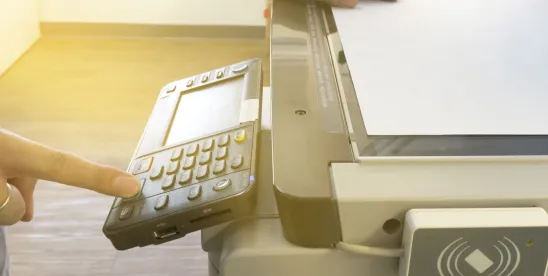Repeat after me: “I _____ will respond to RFAs that are served on me, my client, or my organization.”
Thank you.
I really shouldn’t have to do that, but this is now at least the third time a judgment has been entered in a TCPA case as a direct result of a defendant not responding to RFAs.
It wasn’t long ago, for instance, that a Defendant learned the hard way to respond to requests for admission in an individual TCPA suit filed by Shelton. That oversight cost the defendant a relatively small $33K TCPA judgment.
A similar—much worse—situation occurred a while back involving a gentleman in New Jersey who was sued in a TCPA class action in Arkansas. But that was a bit different since the court probably never had jurisdiction over him to begin with. Still, a failure to respond to RFAs, nearly cost that guy his house.
Well in Whiteamire Clinic, P.A. Inc. v. Cartridge World N. Am., LLC, CASE NO.1:16CV226, 2021 U.S. Dist. LEXIS 30864 (N.D. Oh. February 19, 2021) a TCPA junk fax defendant just cost itself $4.293MM by failing to respond to a set of RFAs, and that has just got to hurt.
In Whiteamire the Defendant allegedly blasted 8,586 faxes. There was no question the faxes lacked the proper opt out language required of unsolicited faxes sent with an EBR. So Defendant’s only path to victory was to assert that the faxes were sent with consent.
Now consent in a junk fax case is often not provable on a classwide basis—numbers come from different sources at different times and proving whether any individual fax was sent with consent is often a highly individualized inquiry. What a pain.
To get around that little nuisance, however, clever TCPA class counsel will often serve RFAs asking the Defendant to admit, inter alia, that it lacked consent to send the calls or texts at issue.
RFAs are pretty straightforward to respond to and really shouldn’t catch anyone off guard. But the truth is, they sometimes do. And when they do, the Federal Rules have a particularly nasty “auto-admit” provision that deems every assertion in a set of RFAs admitted if the recipient does not timely respond to them.
In the Shelton suit, for example, the Defendant didn’t think it needed to respond since the RFAs were due after the close of discovery. That was a high risk move to avoid a response that probably would have taken a few hours to prepare. And the result was a judgment against the defendant.
Whiteamire is a bit worse. There the defendant went dormant in the case after its original counsel withdrew from the action. So when Plaintiff served the RFA set the Defendant, apparently, did nothing in response.
That just makes it too easy.
Plaintiff lobbed the RFAs to the Court along with evidence of the number of faxes sent and the content of those faxes (showing a lack of opt out.) and that’s all it took.
After concluding the RFAs were deemed admitted, the faxes were sent without consent, and lacked the required opt-out language the court awarded the statutory minimum $500.00 per fax—resulting in a judgment in favor of the class of $4.293MM.
Ouch.
The other lesson here–in addition to the whole “respond to RFAs” thing–is that junk fax TCPA cases are still a thing for some reason. If you are still faxing people: i) why?; ii) remember that you need to have consent or an EBR and proper opt out language.




 />i
/>i